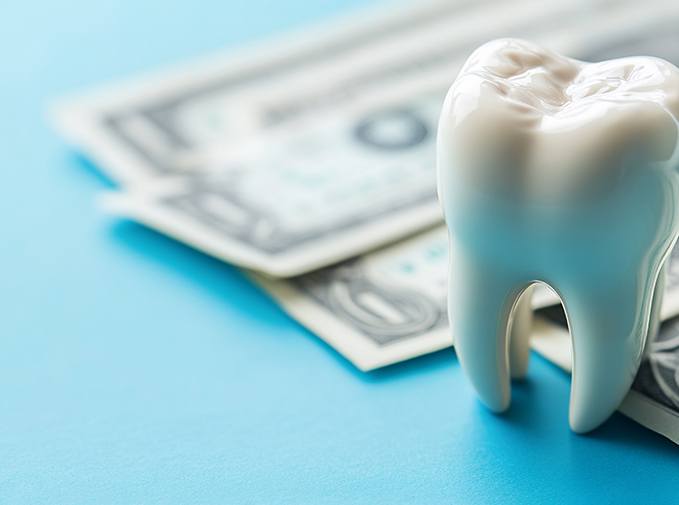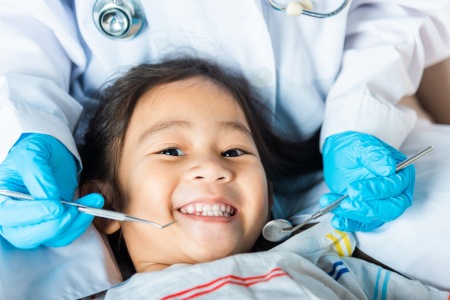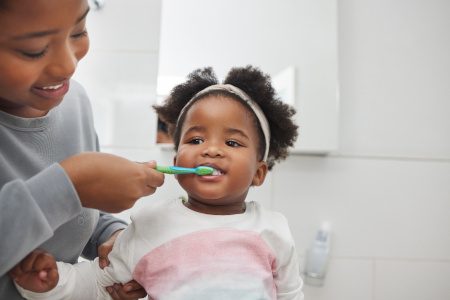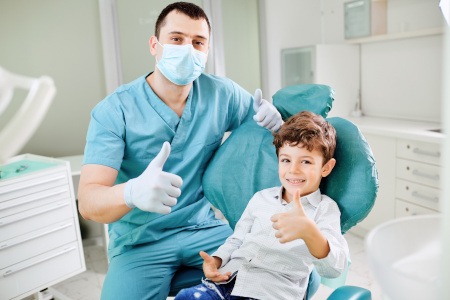Emergency Kids’ Dentistry – Inver Grove Heights, MN
Coming to Your Child’s Rescue During Dental Emergencies

There’s no time to lose when a real dental emergency strikes. A knocked-out, badly decayed, or severely injured tooth could be lost for good if it’s not treated in time. As a parent, you should make sure that your child has somewhere to go if they ever need urgent care, and Mighty Molars Pediatric Dental is here to help! Call us immediately for emergency kids' dentistry in Inver Grove Heights, MN if your child has unexplained tooth pain, a visible dental injury, or any other symptoms that call for attention right away.
Why Choose Mighty Molars Pediatric Dental for Emergency Kids’ Dentistry?
- Emergency Appointments
- Multiple Sedation Options Available
- Fantastic, Caring Dental Team
How We Handle Dental Emergencies

- Emergency Appointments: We can schedule an emergency appointment promptly, ensuring we get to your child’s rescue as soon as possible.
- Comprehensive Exam: Once you and your child arrive, we’ll quickly perform a detailed emergency examination. We need to figure out the cause and extent of the emergency before we can offer any sort of treatment. At this point, we’ll also take steps to stop any immediate discomfort your child is experiencing.
- Review Findings: After we have a full understanding of your child’s emergency, it’s time for us to put together a plan. We’ll work with you to pick the best treatments for your little one’s needs, and we’ll make sure you’re aware of the costs and timeline beforehand.
- Get Your Child the Care They Need: Once we have a treatment plan, it’s time for us to stop your child’s pain for good! From simple treatments like fillings to more advanced care, we’re ready to take whatever steps are needed to get your little one’s oral health back to normal.
The Most Common Dental Emergencies
If you’re not sure what counts as a dental emergency and what doesn’t, give us a call! Taking the initiative in your child’s dental care could save them from a bigger, more painful dental issue. Listed below are some of the most common dental emergencies we see at our pediatric dental office:
Understanding the Cost of Pediatric Emergency Dentistry

When your child is scared and hurting, acting quickly can often make all the difference in saving their smile. However, many parents want to know what they can expect to pay for their kid’s dental emergency ahead of time to ensure they can afford it.
Our team is happy to provide a detailed estimate after Dr. Strumpf has the chance to examine their condition. Continue reading to learn more about what influences the final invoice, and feel free to contact us for additional information.
Every Pediatric Dental Emergency is Unique
We’ll know more about the anticipated pricing for your child’s visit once we have evaluated them. Some dental emergencies can be treated relatively easily with simpler solutions, like a prescription mouthwash or a tooth-colored filling. Others require more complex solutions like a root canal and a dental crown. Our team will review your child’s treatment options and the associated fees with you prior to beginning any procedure. Once we know more about the underlying issue and how to address it, we’ll take the time to walk you through the information for your approval.Does Dental Insurance Cover Pediatric Dental Emergencies?
Most dental insurance policies do include some form of coverage for urgent scenarios. For example, many allow for a once-annual emergency exam with X-rays for your child. Your plan likely also includes some compensation for various services that might be required, like anywhere from 50% to 80% of the cost of a root canal or restoration. However, there’s no guarantee because every insurance provider is different, so it’s worth checking your information to verify your benefits. Please let us know if you’re struggling to find the information or need help with claims paperwork. Our friendly office staff are familiar with the process and are happy to assist you.Other Options for Making Pediatric Dental Emergencies Affordable
We happily accept dental insurance but also understand that not all patients carry a policy. We don’t want your budget to prevent your child from receiving the top-quality care they deserve, so we’ve partnered with CareCredit to help make services more affordable. This third-party financial program allows you to break down the total amount due into more manageable installments that are easier on your wallet.How Taking Care of Your Child’s Smile Can Save Money
Although some oral emergencies are completely accidental and unavoidable, there are many common problems that can be prevented. For instance, brushing and flossing twice daily removes plaque and bacteria from your kid’s grin to avoid cavities, gum disease, and injuries. Also, scheduling a standard checkup for your little one every six months allows Dr. Strumpf to monitor their condition to catch and address any areas of concern early on. This keeps their smile happy and healthy so they’re less likely to require a costly or complicated procedure. Not only that, but most dental insurance policies cover 100% of preventative care, so scheduling consistent appointments can save money in the long run.Keys to Preventing Children’s Dental Emergencies

As a parent, you want one thing for your child: for them to be happy and healthy. The good news is that there are several things you can do to save your little one from dental emergencies before they even occur. With this in mind, keep reading to learn five preventive measures we recommend taking.
Schedule Regular Dental Checkups and Cleanings

Starting from the moment your child’s first tooth makes an appearance, they should get a dental checkup and teeth cleaning every six months. This is crucial because it doesn’t take long for tooth decay to develop, and we need to intervene with the necessary restorative care right away if that happens. Plus, it’s possible for plaque and tartar to build up, especially when their fine motor skills are developing as a toddler or their motivation is fleeting as a teenager.
Make Sure Your Child Is Brushing Regularly

In addition to bringing your child to our office twice a year for a dental checkup and teeth cleaning with Dr. Matt Strumpf, you need to make sure that they are brushing regularly in order to prevent cavities. Once they have two teeth that are touching, introduce flossing into their routine. Then, around the age of 12, add an antimicrobial mouthwash to their regimen as well. That way, their teeth and gums stay healthy and happy throughout the years!
Get Your Child a Mouthguard for Sports

Of course, you can’t always predict teeth-breaking accidents. You can, however, dramatically reduce the chances of your child chipping, cracking, or knocking out a tooth by making sure they wear a mouthguard while playing sports. In fact, parents are encouraged to get their child a mouthguard even if they participate in a non-contact or solo sport, like rollerblading. That way, their chances of winding up at our office with a painful dental injury are significantly lower.
Break Bad Habits Early

Have you noticed that your child chews on the back of their pencil while doing homework? Do they chew on ice cubes, bite their nails, or use their teeth to tear into plastic wrapping? These are all habits that put their teeth at risk, which is why it’s so important to introduce healthier behaviors sooner rather than later.
Keep Added Sugar to a Minimum

Like many other children, your little one might love soda, candy, and everything else that contains sugar. While indulging every now and again is certainly okay, it’s important to do your best to fill their plates with nutrient-dense foods as well. Otherwise, there’s a good chance that their teeth will decay, crack, or fracture, requiring an immediate visit to our Inver Grove Heights dental office for treatment.









